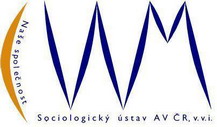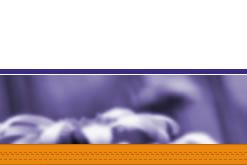| |
 |
 |
| The press release service of the Public Opinion Research Centre of the Institute of Sociology of the Academy of Sciences of the Czech Republic. |
 |
 Confidence in constitutional institutions and satisfaction with political situation in August 2009 Confidence in constitutional institutions and satisfaction with political situation in August 2009 |
 |
| Date: 28.08.2009 |
| Category: Political - politicians, political institutions |
| Author:
Daniel Kunštát
|
 |
Confidence in constitutional institutions and satisfaction with political situation in August 2009
In May 2009 within the regular survey CVVM SOÚ AV ČR, v.v.i., questioned respondents about their confidence in constitutional institutions. In this month there was a question about their trust to Chambers of Parliament, Government, President, Local and Regional Councils.
As a part of the CVVM surveys there is a question about public satisfaction with current political situation in the Czech Republic. The regular survey of public confidence in constitutional institutions and satisfaction with political situation help to monitor development of public attitudes in the long term.
>> Fulltext is available in Czech only <<
|
 pi90828.pdf pi90828.pdf
 |
 |
 Party Preferences and Voting Model in August 2009 Party Preferences and Voting Model in August 2009 |
 |
| Date: 19.08.2009 |
| Category: Political - election, parties |
| Author:
Daniel Kunštát
|
 |
In August survey CVVM investigated how people trust to political Parties and whether they are willing to take part in elections to Chamber of Deputies. In the press release there are two different types of information : Party preference and a model of voting behaviour.
Party preferences give us information about public sympathy with political Parties in the group of citizens who have voting right and there is also included a part of citizens who will not take part in elections or they do not knot who to vote for.
Voting model indicate anticipated result of elections to Chamber of Deputies in the time of the survey. Voting model comes out of Party preferences but it includes only those who want to take part in elections and they answered us a Party they would vote for – in short this group does not include undecided people and non – voters.
>> Fulltext is available in Czech only << |
 pv90819.pdf pv90819.pdf
 |
 |
| |
 |
| The peer-reviewed journal is published by the Institute of Sociology of the Academy of Sciences of the Czech Republic. Analytical texts handle results from public opinion surveys. The journal appears in Czech. Full texts are available on the journal's web site. |
 |
 Subjective social distances to professions: are there subjective class boundaries in the Czech society? Subjective social distances to professions: are there subjective class boundaries in the Czech society? |
 |
| Category: Study |
| Issue: 2008/1 |
| Author:
Jiří Šafr, Julia Häuberer |
 |
|
Using the concept of subjective social distance we focus on perceptions of occupational categories. First, the theoretical concept of social distance is introduced as a tool for measuring social stratification. Second, subjective hypothetical interactional distances to 22 occupational stimuli are analyzed with data from the Social Distances 2007 survey. People rate the stimuli hierarchically analogous to occupational prestige and socioeconomic status; however some minor divergence can be detected. Further we focus on differences among gender and members of self identified social classes. The main part assesses the hypothesis of the existence of subjective social class boundaries. The status-continuum is shared by the whole public, yet we can identify mental categorization patterns of professional groupings which draw an intense boundary between white and blue collar professions. Further, four groupings regarded as subjective social class can be identified: higher professionals, female lower professionals, qualified and semi-qualified manual and non-manual workers, and unqualified manual professions with low prestige. |
 |
| |
| |


